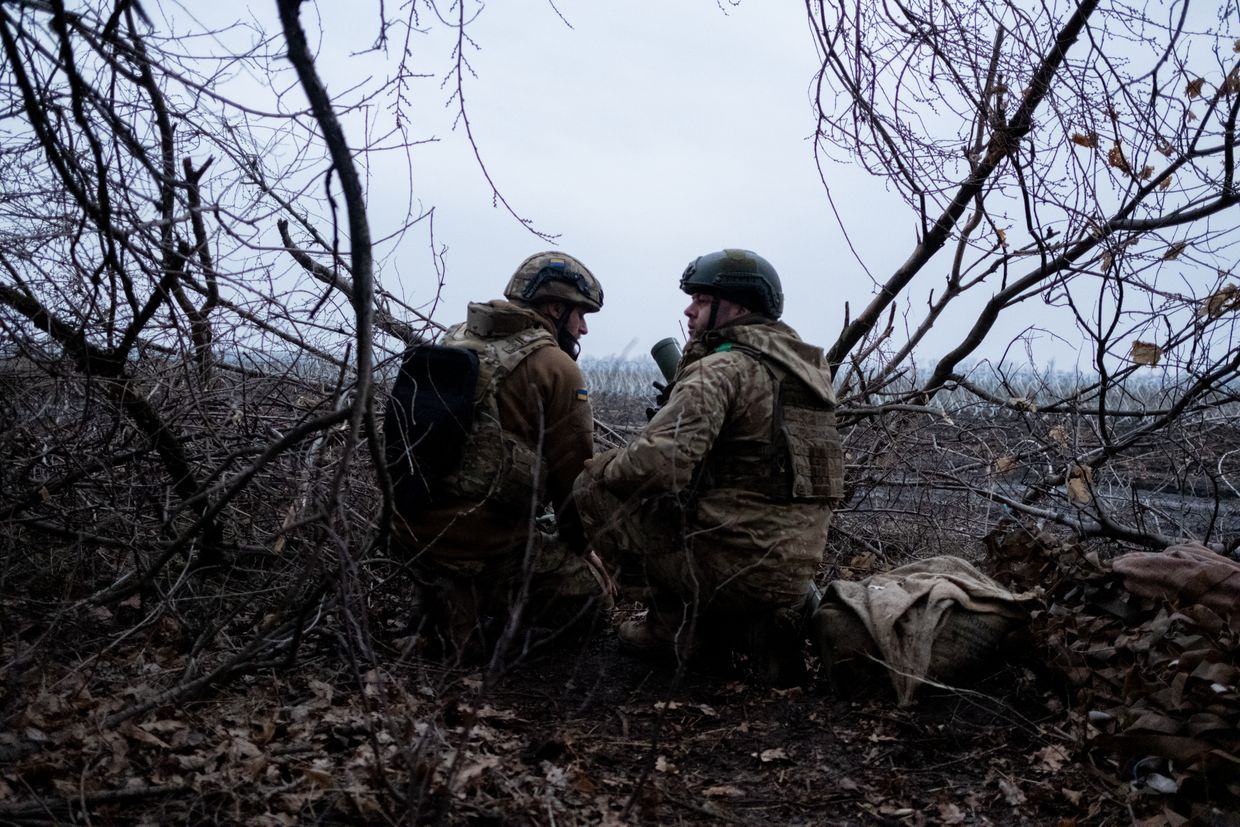Updated: Boris Johnson backs Trump's deal on Ukraine's natural resources

Editor's note: The article was updated with additional comments by Boris Johnson.
Former U.K. Prime Minister Boris Johnson voiced support for the U.S.-proposed deal on Ukraine's natural resources during an event in Kyiv on Feb. 24 attended by the Kyiv Independent.
"The deal should be signed," Johnson said, speaking at the YES conference event held in Kyiv by the Victor Pinchuk Foundation on Feb. 24, the third anniversary of the Russian full-scale invasion. "It commits the U.S. to a free and sovereign Ukraine. A continued American support is well worth the price for Ukraine."
Ukrainian officials said earlier the same day that negotiations on the deal, which would entrench U.S. interests in Ukraine's resources, are in their final stages.
Despite pressure from Washington, President Volodymyr Zelensky has been reluctant to sign the initial drafts of the deal as they lacked security commitments for Ukraine and because the $500 billion demanded by Washington vastly outnumbered the $100 billion provided under the previous U.S. administration.
The initial White House proposal reportedly sought a 50% interest in Ukraine’s natural resources, including critical minerals, oil, and gas, as well as critical infrastructure and ports. Zelensky said Ukraine is not ready to "split 50/50 without knowing what’s ahead."
Johnson said that he has seen the latest version of the minerals deal: "I think it’s better than it was."
"There will be not a penny incurred to that fund unless there is a free sovereign Ukraine. It says the profits will be reinvested at least annually. Ukrainians have negotiated it very, very well," the former prime minister said.
"I look at this document and I see positive things for Ukraine. It has seeds of hope and progress. Get that deal done and get the U.S. locked in. For all its weaknesses — it doesn’t go far enough on security — it’s still a prospect of progress for Ukraine."
The British politician also praised the document's "good language" about a "long-term economic partnership."
Johnson compared the deal to the World War II-era lend-lease deal, emphasizing that the U.S. imposed a harsh deal for the U.K., which "gave up a lot" and had to pay the U.S. back until 2006.

"I think Trump is trying to show Republicans that he’s got something. The tragedy is he’s been listening for too long to Tucker Carlson, who pedals the Russian propaganda," the former British prime minister said.
When asked to comment on Trump's recent statements in which he blamed Ukraine for Russia's war, Johnson said that "Saying that Ukraine started the war is like saying the U.S. provoked Japan to attack Pearl Harbor."
Asked what Winston Churchill would do, Johnson, who authored a book about the late British leader, said that Churchill would do exactly what Zelensky is doing, which is to "keep America engaged."
"Ukraine will win. I remain defiantly optimistic about the chances of this country. (Russian President Vladimir) Putin is going to fail, Ukraine is going to succeed."
Johnson was critical of Europe’s unwillingness to confiscate the roughly $300 billion in frozen Russian assets, of which roughly two-thirds are held in European accounts.
"Who in Europe in the past two years has been talking about these billions? Why haven’t we been hearing from European leaders about $300 billion?" he said. "We only talk about it in the rooms like this, at conferences. There’s not enough political will to do it."
While hesitant to confiscate the funds outright, the G7 members pledged a $50 billion loan for Ukraine covered by proceeds from the immobilized Russian assets.
Johnson backed the idea of putting British troops on the ground, saying it is about showing Putin who is in charge and asserting Ukraine’s sovereignty as a free country that "can choose which clubs to join."
"Putin says to Ukraine (that) you can’t have foreign boots on the ground. By rejecting that, we show who’s in charge of Ukraine. That’s all it’s about. You make visible the fact of Ukrainian sovereignty and independence."
The comments come as U.K. Prime Minister Keir Starmer confirmed readiness to deploy British peacekeepers to Ukraine to monitor a potential ceasefire. The Telegraph previously reported that Starmer's plan includes deploying 30,000 peacekeepers in Ukraine in case of a ceasefire, who would be backed by U.S. firepower.
















